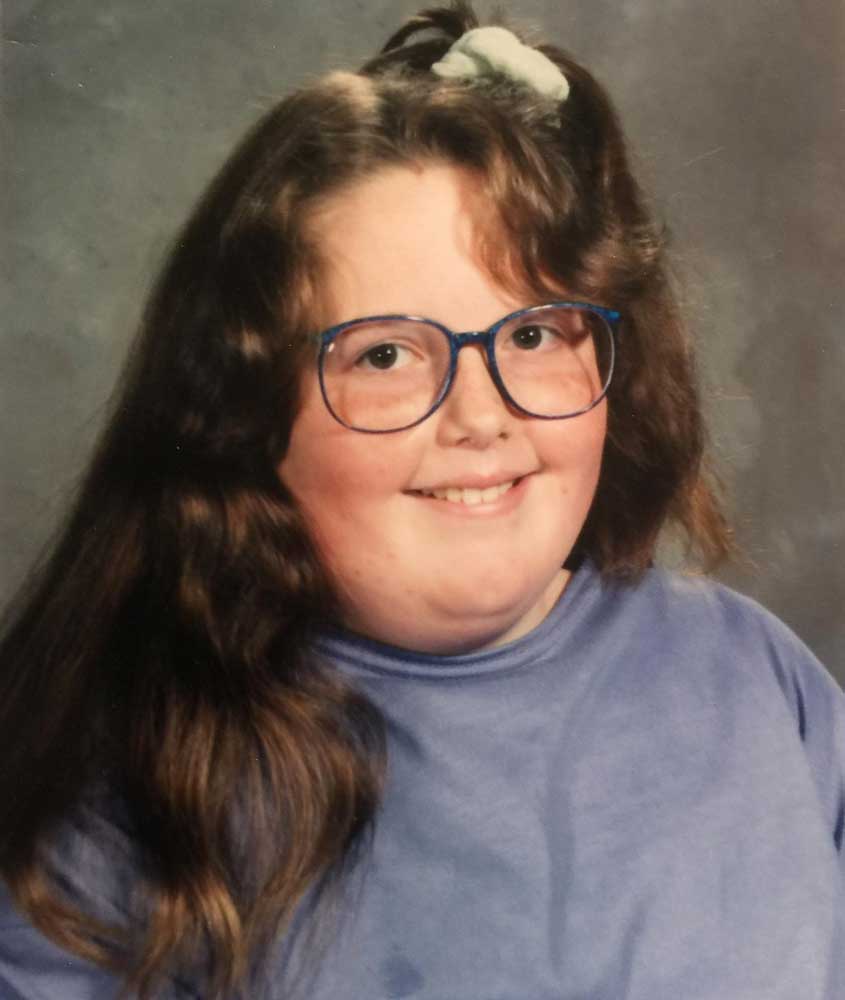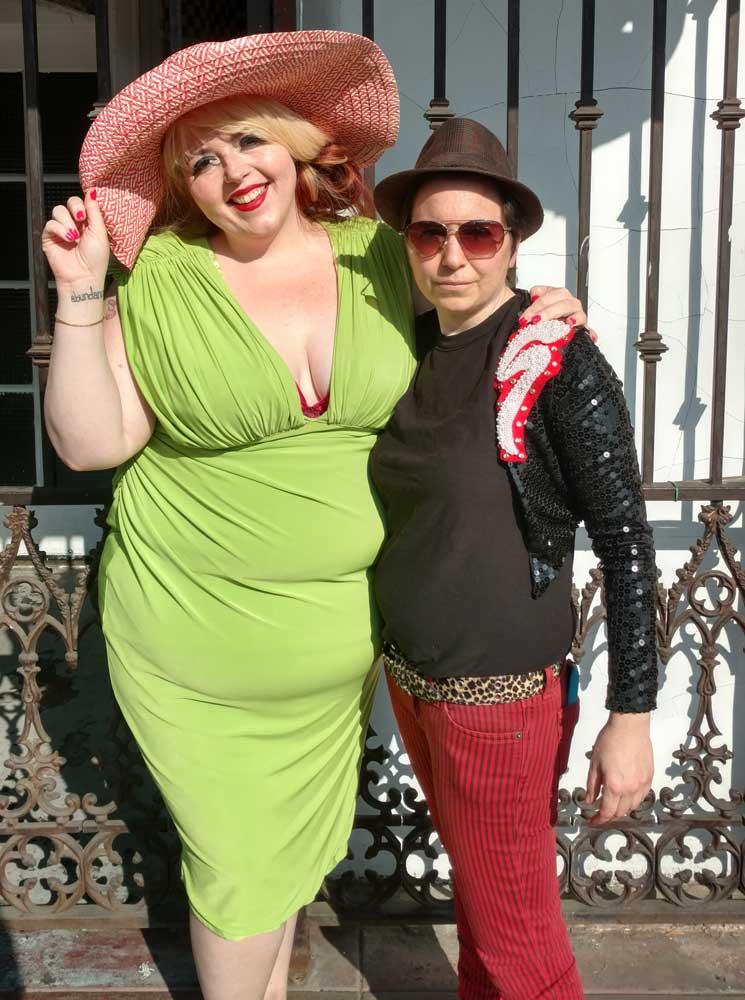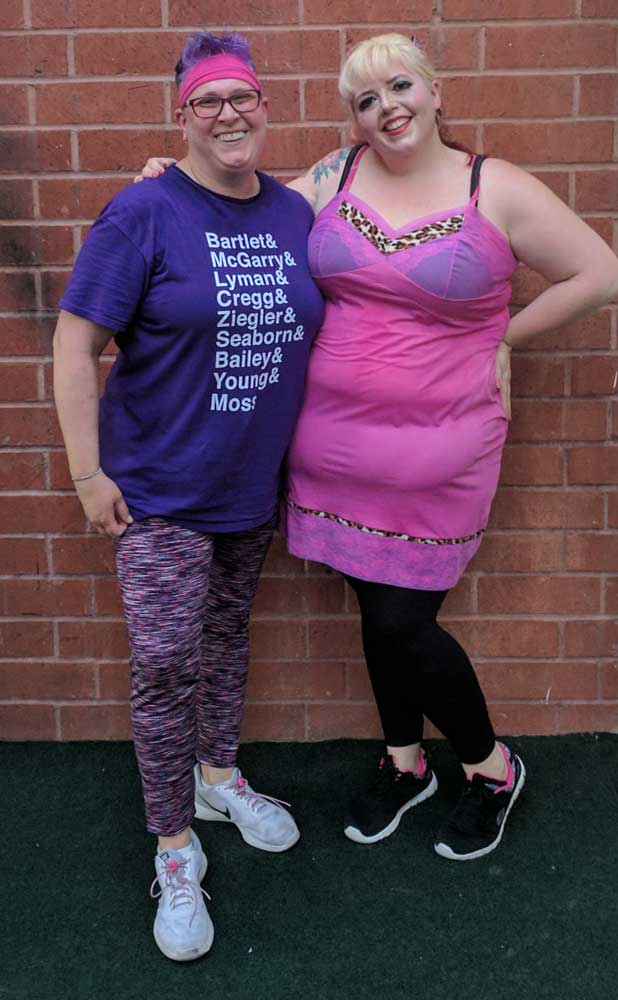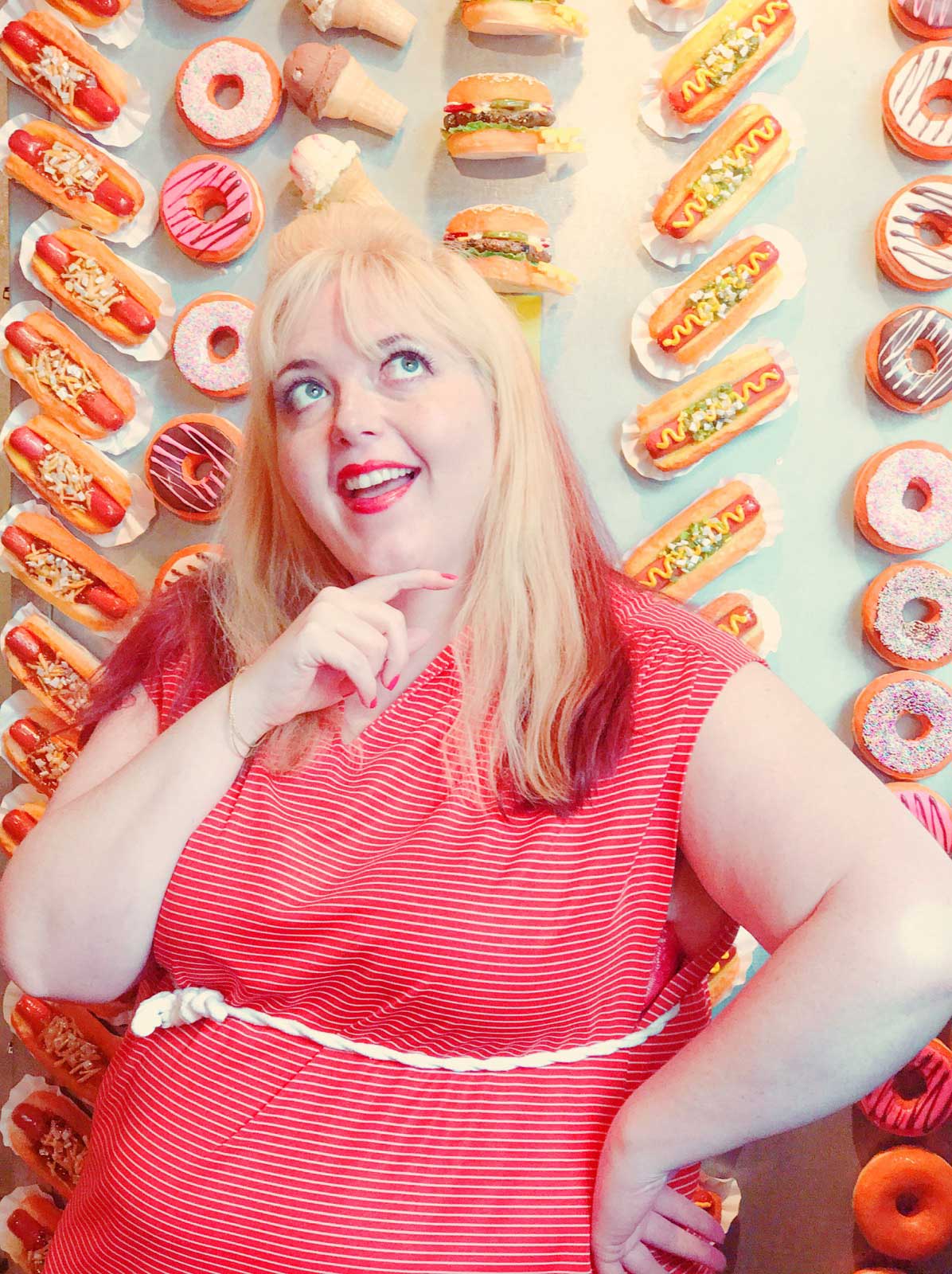When I was eleven years old, I remember vividly the relief of exiting the school bus while girls viciously taunted me. This time the impetus was not my fat, my usual crime. It was having the audacity to wear a half ponytail with several different colored fuzzy ponytail holders on it—and the fuzzy ponytail holders did not match. I was in middle school and my greatest longing in the world was to fit in and go unnoticed. On that excruciating bus ride, filled with shame and regret for my bold choice, I learned that I better not try to have fun with my style. Folks who have been bullied on a bus know how endless the ride can feel, and how painful it is to endure taunting, staring straight ahead pretending it doesn’t bother you.

Fitting in when you’re already wearing adult sizes in sixth grade is basically impossible, especially in the early nineties. Plus size fashion is limited today, but before online shopping and Torrid in the mall, we had nothing but boring career wear to work with. The idea of looking like the typical American pre-teen girl, with her Guess jeans, hypercolor tee shirts and high top name brand shoes was my dream but I neither had the funds or access to make that dream happen.
As I absorbed the other lies I was taught about being a fat woman—that I was not sexually attractive, I better not wear anything revealing and I should try not to draw attention to myself—I lost any desire to discover my own style and perform my gender. Performing gender is a way of showing your internal gender identity externally—usually through clothes, accessories, and maybe make-up.
When I got to college and started the coming out process, I let the same kind of limiting beliefs affect how I presented myself. Due to femmephobia and anti-butch sentiment in my collegiate LGBT community, I learned that having a strong expression of masculine or feminine gender was not acceptable and it was better to lean towards an a-gender or hippy outdoorsy look. I thought that in order to get a girlfriend and be attractive I should be as androgynous as possible. This was kind of a relief because shopping in the men’s department at Old Navy made it marginally easier to find clothes that fit me (this is before Old Navy carried plus size women’s clothes).
I never actually pulled off androgyny, my inherent Femme presentation busted through no matter how many times I heard the term “Lipstick Lesbian” thrown around in a derisive way.

When I moved to Philadelphia for law school I fell into what I like to call the “right” crowd. These friends were supportive, believed I was a babe in a fat body and wildly applauded all of the new things I was doing to express my style and my gender. I began slow, in cute dresses, wearing sleeveless tops, showing cleavage.
Going sleeveless was a revolution for me. I had always believed that stereotype that a fat person I shouldn’t show off my arms, I have no idea how that rule came to be. Arm fat isn’t dangerous, it’s just a benign part of your body. It took a lot of work to get comfortable going out without sleeves on, but having that “right crowd” was really helpful to develop my confidence.
As I began performing on stage first as a drag king and then as a dual drag king/Femme queen I began really pushing the gender envelope. Leaning into different gender presentations I began to figure out what was expressing who I was and what I felt an inherent aversion to.
Far beyond fitting into the standard American womanhood, whatever that is, my actual gender expression is a sort of exaggerated femininity. Like Dolly Parton and Miss Piggy, I feel the most myself in bright make-up, big hair and sexy clothes.
Many queer women (and people) cannot relate to the standards of beauty and femininity that society promotes. Queer folks come in all shapes, sizes and gender presentations and the standards of beauty are not representative of actual human diversity.

Legendary storyteller Shonda Rhimes is partnering with Dove to shift the power of media representation from Hollywood into the hands of real women. Using an all female crew, Dove is helping open up the conversation about the effects of gender stereotypes. Meet Kylee!
Kylee Howell’s story is the second film from Dove Real Beauty Productions and empowers others to find their real beauty. It is a powerful message of non-conformity, self-assurance and shedding the narrow definitions of beauty imposed on herself and other women in her community. It also has a really sweet message from her mom.
I love this video—Kylee is a dapper stylish barber who had to unlearn gender stereotypes to become herself.
Quentin Crisp said, “Style is being yourself on purpose.” I really believe that you have to let go of everyone else’s expectations of you and fitting into stereotypes in order to truly discover your own style. This is so difficult in a culture that commodifies insecurity and prizes fitting in. Thank goodness for the internet and the ability to see so many gorgeous people out there working their own looks, their own gender and their own idea of how to be a woman/man/limitless gender they want.

If you have been struggling to overcome stereotypes and let your unique beauty shine, I highly recommend figuring out who the “right” group is for you. When you’re feeling good, write down who your body positive, supportive, style encouraging friends are. Who in your life believes in an expansive definition of beauty? Write it down and put that list someplace you can see it next time you need encouragement, or some folks to go out with wearing your first sleeveless top (or whatever your equivalent of a sleeveless top may be).
When I walk into the room doing my style and not stereotypes, I’m writing the conversation instead of landing in a narrative laid out by stereotypes. I am showing people I am bold, I take risks, and I am confident. I know now that fuzzy ponytail holder thing I was rocking in sixth grade was a stylish risk and it was fiercely nonconforming.
 Photo by Jes Baker.
Photo by Jes Baker.
I was selected for this opportunity as a member of CLEVER and the content and opinions expressed here are all my own.

Honey you know what gives me the feels? Since I learned to love my body (the one thing that has been with me and carried me through this life) people want to know me and be with me. Shocking! Loving myself has opened my eyes to the idea that others find me interesting.
Love what you’re doing.
Jen in OC.
Not only does a lot of this resonate with me, but I’m just really glad to see a fostering of the conversation surrounding being ones genuine self. It’s a forever journey and I respect every stage of it! Also for what’s it’s worth my grandma, mom, and me all use Dove bar soap exclusively lol like I cannot think of my grandmas big round warm body without the scent of Dove lol. So it’s just nice to see this pairing. Any company that encourages these conversations is going in the right direction.